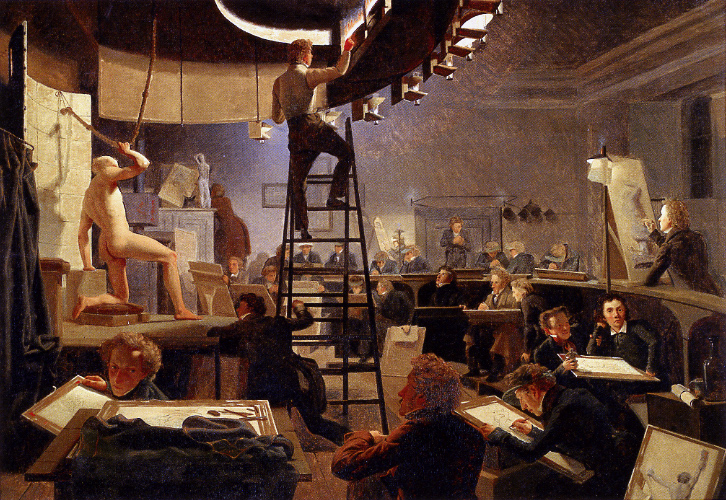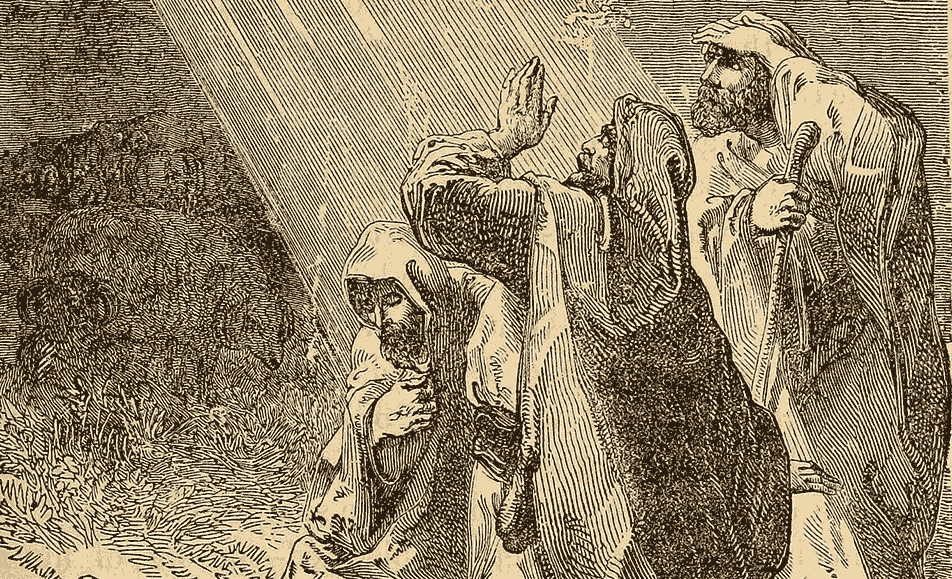
Jewish Philosophical Theology
Young Scholars Summer Workshop
The Herzl Institute, Jerusalem
June 12-22, 2017
Project Directors: Yoram Hazony and Joshua Weinstein
The Jewish Philosophical Theology project invites applications from graduate students and recent PhDs for a Young Scholars Bible and Philosophy Workshop in Jerusalem on June 12-22, 2017. Up to 20 students will be accepted to the program, which will be conducted in English by Institute scholars and invited speakers. Participants will attend seminars on philosophical issues in Hebrew Bible as well as Talmud and Midrash (classical rabbinic stories), present response papers, and visit historic sites in Jerusalem.
Philosophical theology uses the tools of philosophical investigation to seek new spiritual knowledge in theological subjects, including God’s nature and relationship to the world, the fundamental nature of reality, and the nature of human beings and human flourishing. Jewish philosophical theology is a distinctive philosophical enterprise that strives for new knowledge in these areas through the philosophical investigation of Jewish texts such as the Hebrew Bible and classical rabbinic literature; the elucidation of specifically Jewish theological concepts and their comparison with theological concepts inherited from other traditions; and the positive construction of theological explanatory frameworks of significance for contemporary Jews, Christians and others.
Lectures and discussions at the Workshop will be on topics such as: “The Bible as Philosophy?” “The Metaphysics of Hebrew Scripture”; “Is the Biblical God Perfect Being?”; “What Does It Mean for God to Speak?”; “Bible as a Tradition of Inquiry”; “Approaching God Through Metaphor”; “God’s Plans, Failures and Alliances”; “Should God Be Our King?”; “Discovering a Name of God”; “Who Makes Things Happen in the Bible?”
Workshop participants will also take part in the sixth international conference in the “Philosophical Investigation of the Hebrew Scriptures, Talmud and Midrash.” The conference topic for this year is “The Revelation at Sinai: What Does Torah From Heaven Mean?” Invited conference speakers include: R. Joshua Amaru, William Abraham, Shawn Zelig Aster, Jonathan Burnside, R. Shalom Carmy, James Diamond, Lenn E. Goodman, Yoram Hazony, Steven Kepnes, and R. Gil Student. More information on the conference can be found here.
All accepted workshop participants will receive meals, free registration for the conference, and a modest stipend. Limited assistance with travel expenses and accommodation is available.
The application deadline is December 31, 2016. Applications should be submitted online through the following link: herzlinstitute.org/en/workshop-application/.
Applications must include:
- 1-2 page letter of introduction describing your interest in the program
- Recent cv
- Letter of recommendation
Applications will be judged by a panel consisting of Yoram Hazony, Josh Weinstein and Dru Johnson. Applications will be judged principally with respect to potential future contributions to the field of Jewish philosophical theology.
Applications are invited from graduate students and recent PhDs of all disciplinary and religious backgrounds.
All additional inquiries should be directed to Gavriel Lakser at gavriell@herzlinstitute.org
For further information about the Jewish Philosophical Theology project, please consult the project website at www.bibleandphilosophy.org.
This workshop has been made possible by the generous support of the John Templeton Foundation.
Announcement of a conference in
Jewish Philosophical Theology on the topic:
The Revelation at Sinai:
What Does “Torah From Heaven” Mean?
The Herzl Institute, Jerusalem
June 18-22, 2017
The concept of torah from heaven (Heb., tora min hashamaim) plays a central role in Jewish theology. But what precisely does it mean to say that the Jewish torah (Hebrew, “teaching”) is from heaven? This expression refers back to the biblical accounts of Israel receiving God’s teaching at Mt. Sinai, accounts in which God is said to have spoken to Moses and Israel “from heaven.” (Ex. 20.19; Deut. 4.36). But torah from heaven is not restricted to God’s speech at Sinai, and includes subsequent Mosaic prophecy in the desert (at least), and perhaps a great deal more. Traditionally, this concept has been flexible enough to address the legitimacy of dispute and innovation (machloket le-shem shamayim, hiddush) within the framework of an ongoing tradition, even as the centrality of Moses and Sinai has remained indispensable.
This conference will seek to elucidate the traditional Jewish theology of torah from heaven in response to recent challenges. We are especially interested in papers that seek a better understanding of the views presented in the Hebrew Bible, Talmud and Midrash, according to which the torah is to be seen as entering the world through, or being given shape by, God’s speech to Moses and Israel at Mt. Sinai. We hope to address questions such as: What can the idea that the torah is from heaven teach us about the relationship between God’s instruction and the world of human experience? About the place of the prophet as a bearer of God’s word, bringing instruction to other human beings? About the normative character of a reality that not only “is” but also commands? About the significance of tradition and its relationship with other means of exploring God’s will such as human reasoning?
Among recent challenges is criticism of the classical view of torah from heaven from Jewish scholars and academics, who have proposed the adoption of a rival theology of torah from heaven: One in which God gave his teaching to Israel through the work of large numbers of anonymous scribes over many generations in what has been called an “unfolding” revelation. According to this theory, God gave the torah to Israel without having need of either Moses or of Sinai to do it. Papers submitted for presentation at the conference can consider such critiques and develop considered responses to them.
More generally, conference papers should address, but need not be limited to, questions such as: What is the meaning and relevance of the claim that God spoke and appeared to Israel at Sinai? That God had to descend upon the mountain to teach Israel, and that Moses had to climb up to be taught? How are God’s speech, appearance, covenant and law related to one another? What is to be learned from the unique characteristics of the Sinai events, such as God’s speaking of the Ten Precepts (i.e., the “Ten Commandments”), his apparent revelation of his form to Moses and to the elders upon the mountain, and the variety of Israel’s responses? What are the standpoints of the account in Exodus and Deuteronomy on these and related questions, and of the points of view in the Talmud and Midrash? How is Sinai related to other events of God’s appearance, speech and law-giving? What is unique about Moses’ prophecy? Do later developments in philosophy, theology and science—whether Jewish, Christian, or other—provide resources for recognizing a distinctive Hebrew Bible or classical rabbinic view of God’s nature or of human nature as presented in the classical Jewish sources describing the Israel and Moses at Sinai?
Please consult the draft working paper on “Torah From Heaven: Moses and Sinai in Exodus” by Yoram Hazony available online here: bibleandphilosophy.org/wp-content/uploads/2016/11/Hazony-Torah-From-Heaven-Paper-Nov-16-2016.pdf. This paper maps some of the central issues that this conference aims to address.
The conference invites papers and active participation by Jews, Christians, and individuals of other backgrounds.
Conference Directors:
Yoram Hazony (The Herzl Institute)
Dru Johnson (The King’s College)
Joshua Weinstein (The Herzl Institute)
Invited Speakers include:
William J. Abraham (Southern Methodist University)
R. Joshua Amaru (Yeshivat Eretz Hazvi)
Shawn Zelig Aster (Bar-Ilan University)
Jonathan Burnside (University of Bristol)
R. Shalom Carmy (Yeshiva University)
James Diamond (University of Waterloo)
Lenn E. Goodman (Vanderbilt University)
Steven Kepnes (Colgate University)
R. Gil Student (Independent Scholar)
Scholars wishing to present papers at the conference should submit abstracts of 500-1,000 words together with a current CV through our online paper proposal form at the following link: herzlinstitute.org/en/herzl-institute-2017-conference-paper-proposal-submission/
Priority will be given to papers that engage directly with texts from the Hebrew Bible and/or classical rabbinic sources such as the Talmud and Midrash; and which bring these texts to bear on questions of concern for philosophical theology.
The submission deadline is December 31, 2016.
Please keep in mind that full-length draft papers will need to be circulated to participants a month prior to the conference date. Presentations will be 40 minutes + 20 minutes Q&A.
A limited travel fund will be available to assist scholars and students wishing to attend the conference. Conference papers will be considered for inclusion in a forthcoming anthology of papers on this subject. Submission of a paper will be considered submission to the conference volume as well.
Graduate students and recent PhDs should also consider applying to the Bible and Philosophy Young Scholars Workshop to be conducted by the Herzl Institute during the week prior to the conference. Workshop participants will be eligible to apply for student funding to offset costs of travel and accommodations. For more information about the workshop, follow this link: bibleandphilosophy.org/young-scholars-summer-workshop.
For a general overview of the “Jewish Philosophical Theology” project at the Herzl Institute, follow this link: bibleandphilosophy.org
Please direct correspondence to gavriell@herzlinstitute.org

